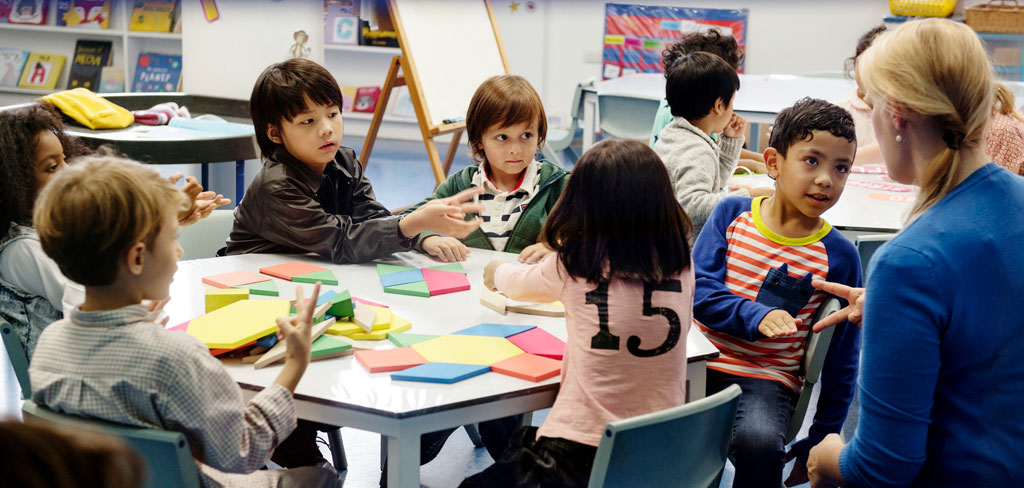Supporting research and well-being as a priority

Through the WellAhead initiative, the McConnell Foundation has supported K-12 education systems across Canada to integrate social and emotional well-being as a core priority. Kate Storey is a recipient of a McConnell Foundation grant to use a strengths-based approach to improve health and change the lives of schoolchildren.
Here is a Q and A with Kate Storey and Paul McArthur, knowledge manager of the McConnell Foundation’s WellAhead initiative.
Why did the McConnell Foundation choose to fund the project led by Kate Storey in the School of Public Health?
Paul McArthur: As the WellAhead initiative developed, our education, health and non-profit partners identified the need for us to share a more rich description of what education looks like when well-being is a priority, and to surface stories of how school districts have come to establish this priority in their policies, funding flows, structures and practices.
Given Dr. Storey’s content expertise on school health, qualitative research and knowledge mobilization, along with her strong relationships and reputation with school districts, Dr. Storey was an obvious fit to lead this work.
How does Dr. Storey’s project fit with, or align with, the values and priorities of the McConnell Foundation?
Paul McArthur: In addition to our commitment to social and emotional well-being in K-12 through the WellAhead initiative, the McConnell Foundation takes a strategic orientation to leverage social innovation tools and approaches to change systems that can improve social and environmental well-being at scale.
Dr. Storey's Case Studies project takes a system-change lens to support school and system leaders across the country to learn about what they can do to improve their approach to well-being and how they can lead an effective process to get there.
Dr. Storey, you received a grant from the McConnell Foundation. What is the nature of your work and how were you able to use the grant to improve the health of kids?
Kate Storey: The support we received from the McConnell Foundation for our School Authority Case Studies allows us to focus on understanding how and why different school authorities in Alberta and British Columbia have been able to shift their school community culture to one that prioritizes wellness, using an exploratory case study approach. We are using data at provincial and school jurisdictional levels, to move beyond the “what” (what jurisdictions have implemented) to an exploration of the “how” and “why” – the story behind a shift towards wellness becoming a key priority.
Wellness is a precondition for learning. Focusing on wellness in K-12 education is proven to support positive mental health, improve academic performance and contribute to favourable life outcomes for students and staff. Increasingly, jurisdictions across Canada, and their partners, are looking for insights on how to embed this focus across their school communities.
Ultimately our goal is to inspire others to make ‘healthy kids in healthy schools’ the norm across Canadian school authorities.
Why is a strengths-based approach to improving the health of kids important? Does it work?
Kate Storey: School community members collectively (students, parents, teachers, administrators, support staff, central office staff, community partners, etc.) have a wealth of knowledge, skills, and relationships.
Strengths-based approaches work because they leverage existing assets in school communities – including student knowledge, to shape unique and creative solutions to improve health. The saying “nothing about them, without them” really applies here. If you want to shift culture to create healthy school communities, you need to build on the strengths that school communities already possess.
How does the McConnell Foundation hope this initiative will change lives?
Paul McArthur: K-12 education systems across Canada and globally are increasingly seeing their role in supporting student well-being, yet much of the efforts led to date have been piecemeal, short-term and meet challenges to reach scale and sustainability.
Providing school and system leaders with inspiring stories of not just what they can do to improve student well-being in the short-term, but how they can develop effective system-wide strategies will—hopefully—inspire a new wave of action that promotes sustainable impact to improve the well-being of Canadian students.
Help promote sustainable impacts of public health
Contact
Jacqueline Andersen
Assistant Dean, Development
E: anderse4@ualberta.ca